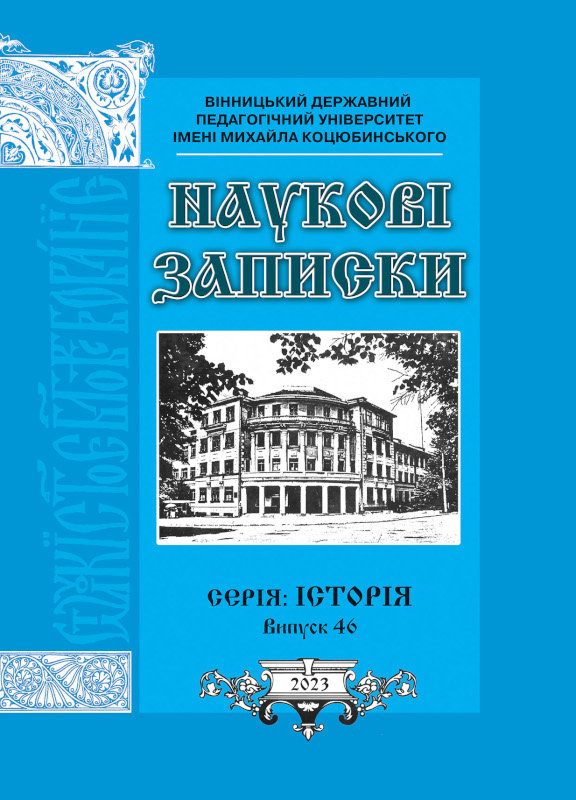Abstract
The purpose of the article. To analyze the personnel, the interaction of educators with children, to highlight illegal actions and abuse of the staff of orphanages. The methodology of the research. The research uses complex and specific-historical approaches, general scientific (analysis and synthesis, induction and deduction) and special-historical (historical-genetic, comparative-historical) research methods. Scientific novelty consists in a deeper, systematic analysis of the personnel of orphanages and their interaction with pupils. Conclusions. Due to the fact that during the researched period work in orphanages remained in the category of low-paid and unprestigious professions, there was always an acute shortage of not only highly qualified, but also workers with at least the appropriate education. Often, people who had no relation to pedagogy and had no idea about working with children got into management positions in orphanages. This greatly complicated the life of orphans, and sometimes even threatened their lives and health, because low-qualified educators could not provide proper care, which sometimes led to accidents, sometimes to death. In addition, due to the fact that children's homes remained on the periphery of state supervision, favorable conditions were created for various abuses by the staff of these children's institutions. Most of the workers tried to get additional benefits for themselves, starting with excessive bonuses at any convenient opportunity and ending with the theft of property and funds intended for orphans. There were also quite a few cases when directors, and sometimes pioneer leaders, considered pupils as objects for their own sexual pleasure. In addition, it was practiced to use the labor of minor orphans who, with the permission of the directors, were assigned to private individuals as domestic workers.
References
DAKHO – Derzhavnyy arkhiv Kharkivsʹkoyi oblasti [State archive of the Kharkiv region].
DAKO – Derzhavnyy arkhiv Kyyivsʹkoyi oblasti [State archive of the Kyiv region].
Dobrov, P.V., Hridina, I.M., Kasʹyanova, N.M. (2011). Borotʹba z dytyachoyu bezprytulʹnistyu ta bezdohlyadnistyu v pershi pislyavoyenni roky (na prykladi Donbasu) [The fight against child homelessness and neglect in the first post-war years (on the example of Donbas)] Monohrafiya. Donetsʹk. http://enpuir.npu.edu.ua/handle/123456789/12324
HDA MVS Ukrayiny – Haluzevyy derzhavnyy arkhiv Ministerstva vnutrishnikh sprav Ukrayiny. [Sectoral state archive of the Ministry of Internal Affairs of Ukraine.]
Marochko, V.I. (Comps.). (2019). Holod 1946–1947 rr. v Ukrayini: kolektyvna pamʼyatʹ [Famine of 1946–1947 in Ukraine: Collective Memory]. Kyiv. 1176 s.
Lysytsya, L.H. (2021). Funktsionuvannya spetsialʹnykh dytyachykh ustanov URSR u 1943–1950 rr.: [Functioning of special children's institutions of the Ukrainian SSR in 1943–1950] monohrafiya. Cherkasy.
Proskura, O. (2016). Zapiznila spovidʹ. [Belated confession]. Kyiv. 504 s.
TSDAHOU – Tsentralʹnyy derzhavnyy arkhiv hromadsʹkykh obʺyednanʹ Ukrayiny [Central State Archive of Public Associations of Ukraine]
TSDAVOU – Centraljnyj derzhavnyj arkhiv vyshhykh orghaniv vlady i upravlinnja Ukrajiny. [Central State Archive of Public Associations of Ukraine].

This work is licensed under a Creative Commons Attribution 4.0 International License.
Copyright (c) 2023 Iryna Bezliudna





